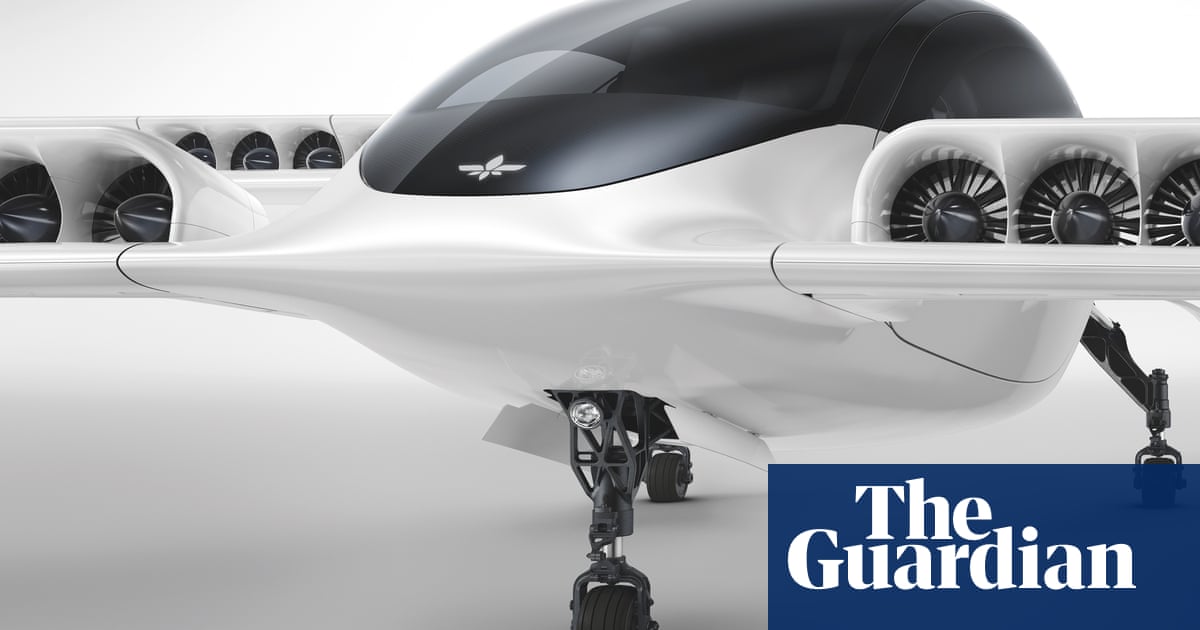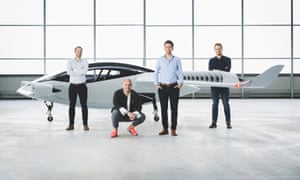Lilium says electric jet-powered five-seater aircraft could be in service by 2025

A new flying taxi has been unveiled by German start-up Lilium, which claims the vertical take-off craft could be the basis for an on-demand air service within six years.
The electric jet-powered five-seater aircraft is designed to travel up to 300km, a journey that would take it an hour at top speed.
While a smaller version of its novel plane flew in 2017, Lilium said that the maiden flight of a full-scale prototype earlier this month a brief, remote-controlled test hover in Munich was a huge step.
The firm, which has attracted more than 100m (87m) in investment since its founding in 2015, has set a target of offering Uber-style, app-based air taxis in multiple cities by 2025.
The latest iteration, with room for a pilot and four passengers, will be the template for Liliums mass production model. With sufficient economy of scale, Lilium believes fares would be around $70 (55) per head for a cross-city hop from, for example, JFK airport to Manhattan.

Daniel Wiegand, co-founder and chief executive, said: We are taking another huge step towards making urban air mobility a reality. The Lilium Jet itself is beautiful and we were thrilled to see it take to the skies for the first time.
According to Lilium, the relatively simple design, beyond the 36 electric jet engines needed for vertical take-off and landing, make it more safe and affordable than other planes. Once in the air, the power needed in cruise is little more than that of an electric car, Lilium says. The fixed wing design gives a longer range than competitors with drone-based aircraft, which consume much more energy keeping airborne.
Lilium will now seek certification for its new plane through rigorous flight testing, the next landmark being to move the jet seamlessly from vertical to horizontal flight.
Although many people might have reservations about Liliums stated ambition a world where anyone can fly wherever they want, whenever they want Wiegand said that the firm was trying to meet societys demands for quiet, green urban air travel.
Remo Gerber, chief commercial officer, said the jet made less than 2% of the noise of a helicopter: You could utilise this in cities where people live, its totally electric powered … This is very different.
He said that the ambition for an app-based on demand service would not mean landing in every garden… Youd be working with regulation around the world, integrating with public transport systems where they have them. Were coming at a respectful way of thinking how people live, how we create corridors and not just fill the skies with these things.
For people in rural Britain, for example, Gerber said, any disruption would compare favourably to building HS2: You dont have to cut through their lovely countryside. You need a little take-off pad and youre connected to the whole country. Compare that to building roads or building train lines, its a fraction of the cost.
The market for flying taxis could be worth $1.5tn by 2040, according to a Morgan Stanley analysis, and a host of other eVTOLS or electric vertical take-off and landing craft are in development around the world. Uber itself unveiled a very different-looking concept model earlier this year, while Airbus is developing its autonomous Vahana craft. Chinese drone manufacturer Ehang was confident enough to carry VIPs on a helicopter-shaped eVTOL in 2018.


Recent Comments